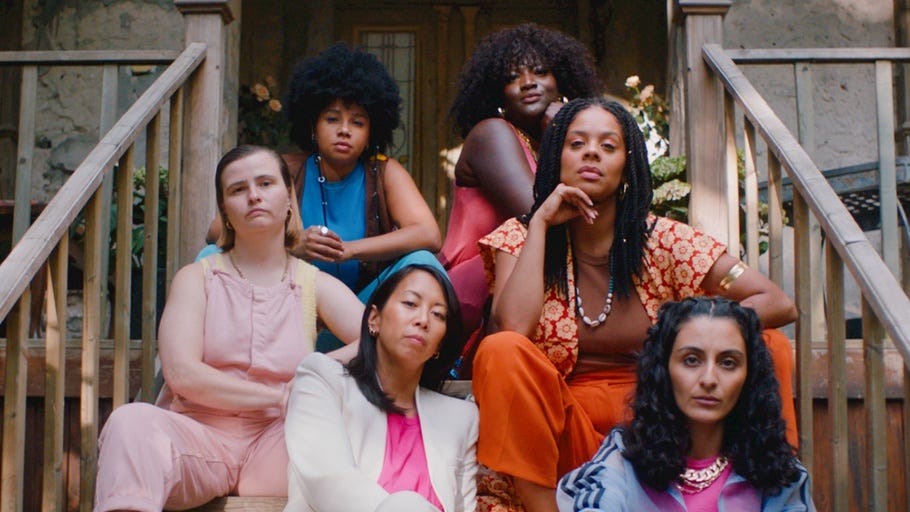'Clashing Differences' Centers Whiteness In A (QT)BIPOC Experience
Fingers crossed it was unintentional
This piece is part of the NewFest 2023 coverage here on “I Care About…”
“A diverse panel could show we’re more serious about inclusion”
I have a big dream of getting accepted into a writer’s residency. You know the type, where you get to escape to some hidden architectural gem, write the piece of your dreams, and connect with 4-7 other writers doing the same. I have applied to a few and one of the questions towards the end are usually about my race or sexual orientation.
Depending on what the pictures on the website look like…I can more or less tell if they are trying to meet a quota. It’s rather easy to sniff out checkbox inclusivity.
In the Germany-based film Clashing Differences, directed and written by Merle Grimme, a group of folks—who are BIPOC or queer, and most of them identify as cis-women—are invited to take part in a panel after an organization is told they are too white. They stay together in a house to prep and record some interviews and instead of connecting they mostly end up clashing.
I…did not dig it. It was a bit too long and was trying a smidge too hard. As much as it was trying to show the realities of people being used as diversity tokens at retreats and conferences, it came off as a film that was enlightening the white women behind them…which is to say it was trying to educate them…which ultimately centers them and their experiences—did you follow me on that?
I did catch a vibe at least once, and that was when a Black character spoke about white feminism. I hate when white feminists try to dictate—or judge—how Black folks dismantle any oppressive system. Be it the patriarchy, misogynoir, or homophobia. We aren’t a monolith, so the expectation that we will fight our respective fights the same way is an unfair one, and it’s even worse when we’re told we’re doing it wrong.
That being said, there was also a lack of connection with the Black people in the film which kinda saddened me. Not saying that Black folks in these settings are going to get along swimmingly purely because they share an identity—all skin folk ain’t kinfolk as they say—but I’d have really dug it to see at least one connection between them that wasn’t fraught.
So many choices were made in this film in an attempt to tell a story about marginalized folks, including pairing every Black person with a white love interest. I wasn’t too interested in watching interracial relationships (and friendships) unravel on screen, I’ve said before that it is a narrative I’m tired of. So again—
I don’t think it was intentional to center white women in the film. But I do wish that Grimme would have done a better job at actually expressing the genuine experiences and emotions of those who are often tokenized without shifting the focus from their stories.
So as much as I didn’t dig it at least it reminded me to be hella mindful when applying for residences and retreats. ‘Cos just like all niggas, my first question when I get accepted will now be “who all gon be there?”






